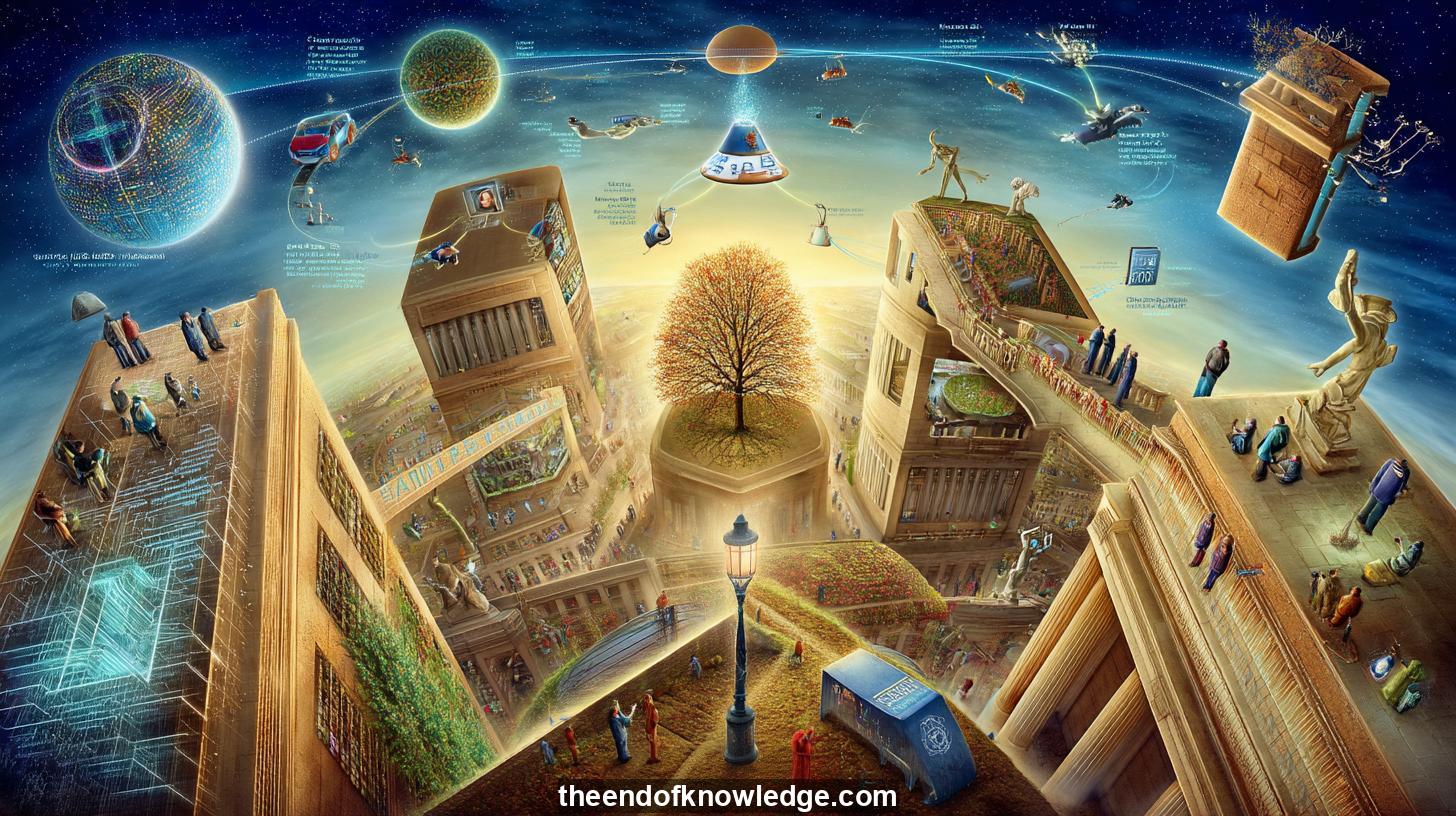NUEVA POLÍTICA.IA: El Impacto de la Inteligencia Artificial en la Política del Futuro
Concept Graph, Resume & KeyIdeas using DeepSeek R1 :
graph LR
classDef tech fill:#f9d4d4, font-weight:bold, font-size:14px;
classDef gov fill:#d4f9d4, font-weight:bold, font-size:14px;
classDef society fill:#d4d4f9, font-weight:bold, font-size:14px;
classDef spirit fill:#f9f9d4, font-weight:bold, font-size:14px;
classDef economy fill:#f9d4f9, font-weight:bold, font-size:14px;
A[Vault7-254] --> B[Tech & AI Impact]
A --> C[Governance & Corruption]
A --> D[Society & Demographics]
A --> E[Spirituality & Values]
A --> F[Economy & Labor]
B --> B1[AI reshapes political
influence dynamics 1]
B --> B2[Decentralized tech combats
corruption, inefficiency 4]
B --> B3[Privacy erosion via
tech advances 5]
B --> B4[AI automation threatens
traditional employment 9]
B --> B5[AI healthcare: ethics
vs promise 12]
B --> B6[Military AI escalates
geopolitical tensions 14]
C --> C1[Systemic corruption erodes
institutional trust 3]
C --> C2[Transparency vital in
governance, tech 28]
C --> C3[Europe lacks strategic
AI vision 16]
D --> D1[Polarization from ideology,
media manipulation 2]
D --> D2[Housing shortages deepen
social inequality 8]
D --> D3[Aging populations strain
social security 11]
D --> D4[Youth adapt to
technological changes 17]
D --> D5[Generational divides impede
tech adoption 18]
E --> E1[Spiritual leadership crucial
for challenges 20]
E --> E2[Western spiritual decline
causes disconnection 21]
E --> E3[Jung: West needs
spiritual renewal 22]
E --> E4[Legacy over short-term
gains prioritized 23]
E --> E5[Tech-spirituality balance
required 26,30]
F --> F1[Immigration, taxes worsen
economic inequality 6]
F --> F2[Submerged economy thrives
via high taxes 7]
F --> F3[UBI proposed for
AI job displacement 10]
F --> F4[Education adapts to
technological shifts 13,29]
class A,B,C,D,E,F tech;
class B1,B2,B3,B4,B5,B6 tech;
class C1,C2,C3 gov;
class D1,D2,D3,D4,D5 society;
class E1,E2,E3,E4,E5 spirit;
class F1,F2,F3,F4 economy;
Resume:
The program delves into the intersection of politics and artificial intelligence, exploring their impact on society. Participants discuss the polarization of politics, corruption, and the decline of traditional systems. They highlight the potential for new technologies like blockchain to create decentralized systems and address issues like privacy and corruption. Economic challenges, including inflation and the submerged economy, are linked to political decisions and the influence of technology. The conversation also touches on immigration, housing crises, and the role of AI in shaping future policies. The need for transparency, ethical AI development, and the importance of education in preparing for technological changes are emphasized. The program concludes with reflections on the future, urging a focus on spiritual and values-based leadership to navigate the challenges posed by AI and political shifts.
30 Key Ideas:
1.- Politics is increasingly influenced by artificial intelligence and technological advancements.
2.- Polarization in politics stems from ideological divisions and media manipulation.
3.- Corruption is systemic, undermining trust in institutions and governance.
4.- Decentralized technologies like blockchain offer solutions to corruption and inefficiency.
5.- Privacy erosion is a significant concern with advancing technologies.
6.- Economic inequality is exacerbated by uncontrolled immigration and tax policies.
7.- The submerged economy thrives due to high taxation and regulatory burdens.
8.- Housing shortages and unaffordable prices worsen social inequality.
9.- AI-driven automation threatens traditional employment structures.
10.- Universal basic income is proposed as a solution to job displacement by AI.
11.- Aging populations and low birth rates challenge social security systems.
12.- AI in healthcare promises personalized medicine but raises ethical concerns.
13.- Education systems must adapt to prepare future generations for technological changes.
14.- Military applications of AI escalate geopolitical tensions.
15.- Europe struggles to compete with the US and China in AI development.
16.- The lack of strategic vision in Europe hinders progress in AI and governance.
17.- Younger generations are more adaptable to technological changes.
18.- Generational divides impede the adoption of new technologies.
19.- The future may see a divide between technologically advanced and traditional societies.
20.- Spiritual and values-based leadership is crucial for navigating future challenges.
21.- The decline of Western spiritual heritage contributes to societal disconnection.
22.- Carl Jung's insights highlight the need for spiritual renewal in the West.
23.- Legacy and impact are more important than short-term gains.
24.- Individual evolution and collective legacy are intertwined.
25.- Unity and cooperation are essential to address societal challenges.
26.- The intersection of technology and spirituality requires balanced approaches.
27.- Ethical considerations in AI development are paramount.
28.- Transparency and accountability are vital in governance and technology.
29.- Education plays a key role in preparing societies for technological shifts.
30.- The future demands a blend of technological advancement and spiritual grounding.
Interviews by Plácido Doménech Espí & Guests - Knowledge Vault built byDavid Vivancos 2025
 >
>